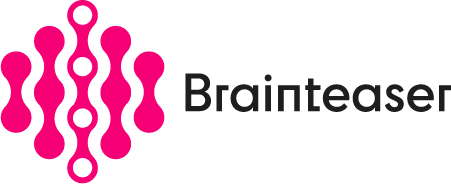At the Brain Innovation Days held in Brussels on October 26-27, 2023, organised by the European Brain Council, representatives from the BRAINTEASER project and from other pertinent initiatives gathered for a roundtable discussion. The focus was on promoting collaboration among various EU projects and catalysing the translation of research breakthroughs into innovation and policy changes.
We seised the opportunity to gain insight into their views on AI and Big Data technologies, their impact on the healthcare sector, and to delve into discussions regarding the transformative effects the European Health Data Space will have on research and clinical practices across Europe.
AI and Big Data reshaping development and fostering access to treatment – Florence Butlen-Ducuing
The field of AI and Big Data is fast evolving, with all stakeholders trying to learn and adjust to these developments. Time is needed to make sure that we set up the right environment to facilitate and enable the use of these new tools for better healthcare. There are a number of options and possibilities using these new tools: from selecting the right populations to improving patient outcome, diagnosis and treatment. The purpose is to create an environment that is really safe, and everybody is willing to trust, and that will ultimately help the patients.

“I think the patient centric approach is really what should drive the progress in this field.”
Watch the interview here.
Patient engagement in research is a win-win partnership – Paola Zaratin
There is a growing demand for preventive, predictive, and personalised medicine, as well as an increasing emphasis on prioritising the individual perspectives of patients and citizens in decision-making processes.
Digital transformation and AI are the catalysers of this shift, allowing clinicians to be closer to patients and researchers to collect huge amounts of data, improving the decision-making process for patients’ health and quality of life. This cannot succeed if we are not able to apply innovative frameworks and innovative participatory research governance to enable stakeholder engagement and patient engagement. We cannot address these two aspects separately; patients’ engagement is a common goal and a common challenge for all stakeholders, since it is vital for the scientific transformation mission. This is evolving as a win-win partnership, a new discipline called “science with and of patient input”.

“I am sure that if we are able to engage stakeholders, citizens and patients in this process, we will succeed. Patients know that the free circulation of data, like the European Health Data Space, is a way to bridge research with health care. And they are willing to share their data. When speaking about ownership, patients just want to be engaged. It is not a matter of privacy. It is a matter of knowing what we are going to do with their data, to make decisions for their treatment and quality of life”.
Watch the interview here.
The EHDS enabling better use of knowledge and data to boost research, innovation and policy making – Elina Drakvik
The EHDS is a legislative proposal and the negotiations are still ongoing, so it is a moving target. It is also an emerging practice, so we do not know yet how it will turn out at the end. The main aim though is to create common rules for enabling better use of knowledge and data to boost research, innovation and policy making, but also for education and statistical purposes.
EHDS will enable faster access to data and therefore will simplify the process for researchers to get the data they need. This will also bring societal benefits, since faster access to data can also then promote discovering novel treatments, access to medicines and also better interventions and prevention measures.

“EHDS through this harnessing of the power of data can enable promoting faster and novel access to discovering new drugs, but also personalised treatments, improved healthcare interventions, as well as more targeted prevention measures”.
Watch the interview here.
Learn more about the Brain Innovation Days!




